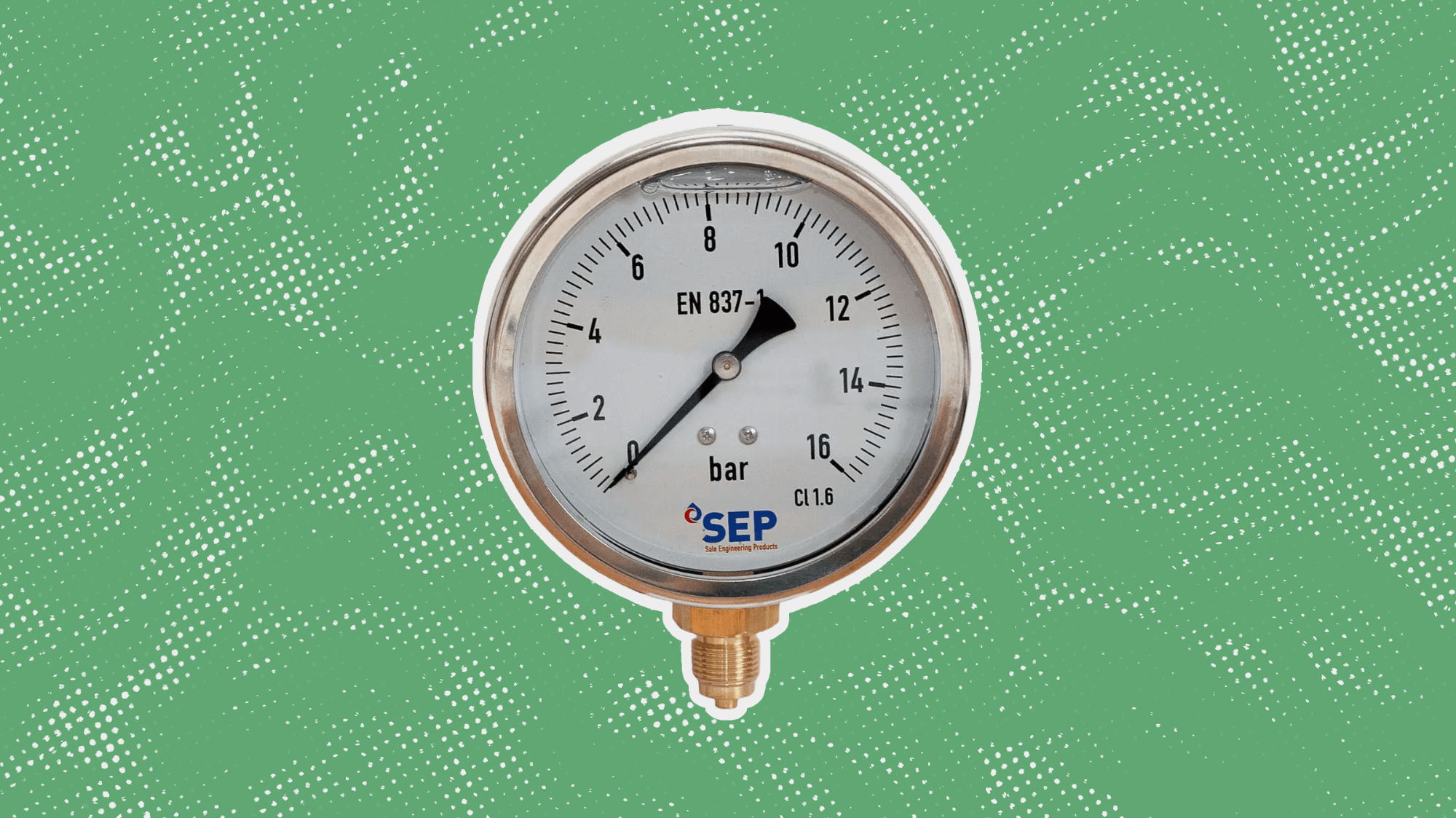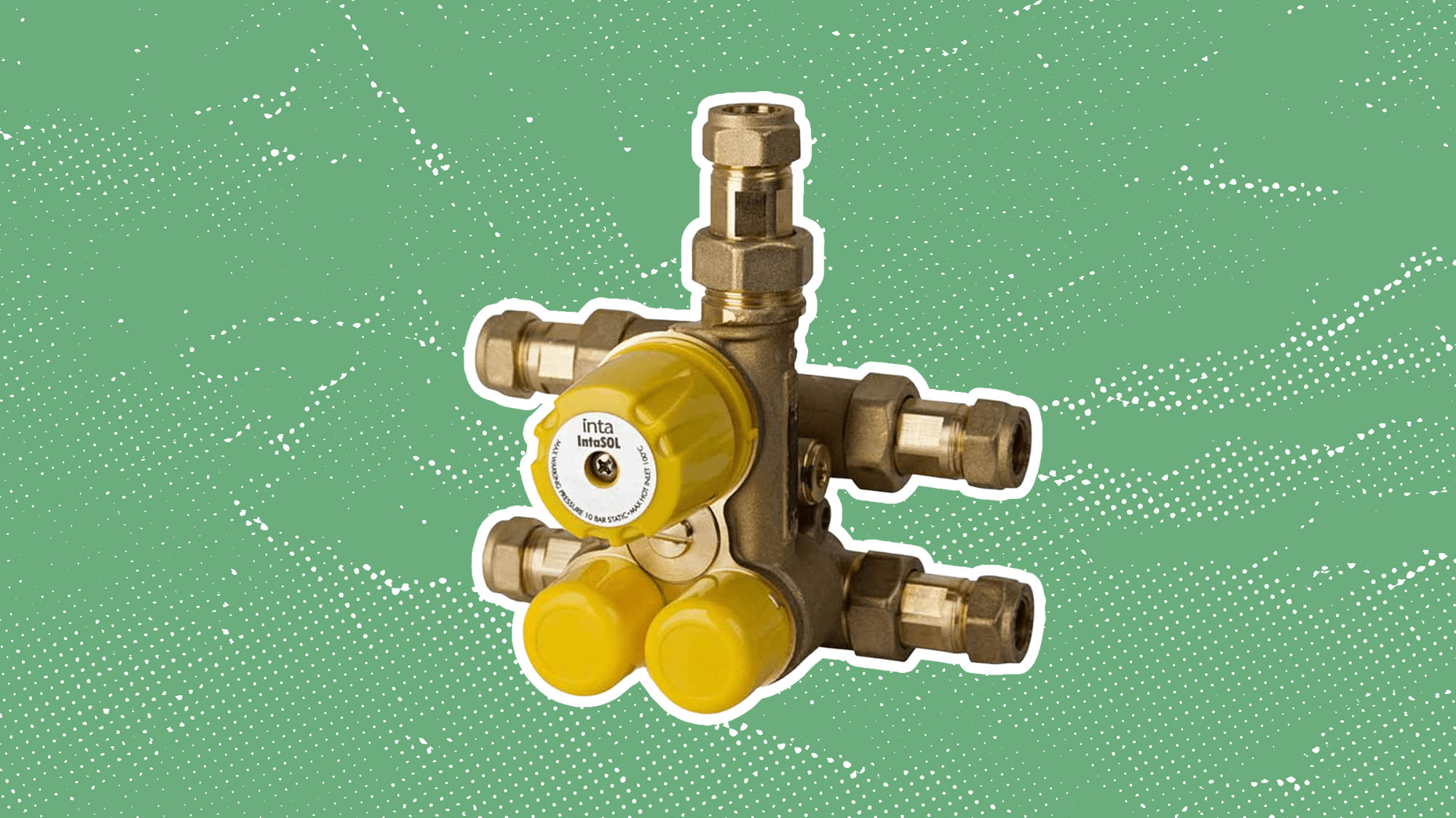Boilers are under more pressure than Keir Starmer, go easy on them. Too much pressure and they'll just walk away (Would that be good? Maybe?).
A nurse with a tightly contracting armband isn’t required to take your boiler's pressure.
If it’s too high – your boiler will tell you, but not over WhatsApp – via your boiler pressure gauge.
...or it just breaks down.
In this guide, we'll explain the major causes of boiler pressure being too high and how to set the ideal boiler pressure, DIY.
And just in case...
Consider - should you repair or replace your boiler? It's also probably a good idea to research the cost of a new boiler.
What is boiler pressure?
Boiler water pressure, simply put – is the balance of water and air within your boilers system (basically within the pipes and components).

In order for your boiler to pump hot water around the pipes in your house, whether that be for a bath, shower or to heat your radiators – the system pressure needs to be adequate.
Low boiler pressure = Not good.
High boiler pressure = Not good.
If you're having pressure-related issues on an all too regular basis, it may be time to consider a replacement. In fact, did you know that if your boiler pressure keeps dropping it may be a sign of a more serious, find out what here.
Need help? Here are our quick help guides:
When it comes to pressure, how high is too high?
As long as you didn’t buy your boiler at Home Bargains, it’s going to have a pressure gauge on the front – identifiable as looking like a cross between a Casio watch and the speedometer from a Ford KA.
Most combi boiler pressure gauges will mark the pressure between 0 – 4 bar.
What does bar mean? Nobody actually knows, but it seems to work as a measurement.
The boiler pressure sweet spot – usually marked in reassuring green – is between 1 – and 1.5 bar.
Anything under 1 bar and you’re suffering from a boiler that’s losing and/or lost pressure.
Boiler's pressure gauge reading 2.5 bar or over? That’s too high.
3 – 4 bars is almost funny. At this point, it’s most likely your boiler has shut itself down as an internal safety precaution.
Prefer video? Check out our YouTube video on diagnosing and fixing high boiler pressure below:
Boiler pressure reading as high, only when the heating is on?
A combi boiler pressure gauge reading over the 1.5 mark whilst the heating is in full operation, is likely normal due to the water demand being placed on the boiler so it’s likely nothing to worry about.
In this instance, a reading between 1.5 – 2.5 bar can be considered normal. A consistent 3 – 4 bar, however, is something to raise with a heating engineer.
If your boiler has been giving high-pressure readings on an all too regular basis, is over 10 years old and has seen better days, you may want to consider a replacement.
Note: Thinking about an immersion heater instead? Read our guide to find out how they compare to combi boilers.
Related boiler help guides:
Here are the most common reasons why your boiler's pressure is too high (and how you can fix them):
It could be free, or it could be costly.
How to Reduce Boiler Pressure
Follow these steps to reduce your boiler pressure:
#1 - Too much water in the system
The most common cause of this is if you have recently topped up (repressurised) your boiler after it’s suffered from low pressure.
How to check:
Check the needle reading on your ever trusty boiler pressure gauge – if it’s reading over 1.5 bar (when the boiler is switched off), your boiler pressure is too high.
How to fix:
You’ll need to drain some water from the system.
You can do this by ‘bleeding’ your radiators – don’t worry, they won’t be in any pain.
Read our quick guide:
And if you're just curious to see how much a new boiler will cost complete this quick questionnaire to find out for free.
To bleed your radiator, you’ll need a radiator key – or something able to comfortably and safely turn the valve on the top corner of your radiator.
Once you’ve summoned this tool and located the radiator valve – very slowly twist the valve anti-clockwise. You should first hear air escaping before water starts to leak from the valve. Let out a small amount of water from each radiator – checking the pressure after each one.
Continue to do so until your pressure gauge is back in the glorious green zone.
If you’ve developed an unquenchable thirst to bleed things, you should at this point, seek help. Never bleed anything with a pulse.
Let out too much? Don’t worry, you can just top up your pressure again.
Cost to fix:
Time, patience & £0.00.
Note: If you have an older boiler and are suffering from lockouts and lukewarm water, you may want to consider whether you have a faulty heat exchanger.
Curious to know which boiler brand performed worst? Find out in our report of the worst boilers.
#2 - Malfunctioning boiler parts
Guilty components could include the boiler pressure release valve, diverter valve, or filling loop which can be identified by an untrained eye.

How to check (pressure release valve): The PRV is a simple device to release water when the boiler is over-pressurised. It’s a copper pipe usually seen protruding on your outside wall behind the boiler.
It should be bent over and almost appears to be ashamed of itself.
If this particular pipe is constantly dripping water – then your PRV is not happy with something and you should call an engineer to check over your boiler. If you're getting no hot water from your boiler, this failing part could be the reason why.
Learn all about combi boilers in our what is a combi boiler guide.
How to check:
The filling loop is the metallic Flexi-pipe underneath your boiler, with either one or two black taps. You should check these taps are tightly closed so they aren’t constantly increasing your boiler's pressure.
How to fix:
If the filling loop taps have simply been left open – ensure they’re tightly closed. If this is already the case though, you’ll need an expert to take a look.
Cost to fix (Pressure release valve):
£100 - £350
Cost to fix (Filling loop):
£80 - £150
Note: Age isn’t just a number with boilers. If yours is over 10 years old and not working, you should start to compare repair costs to the cost and benefits of a new boiler installation.
Common error codes for boilers with high pressure:
Worcester Bosch boiler pressure too high
Likely error codes:
E9, A1, 224V, 1065B, 2970B
Applicable to (boiler model):
Worcester Bosch Greenstar 25i, Worcester Bosch Greenstar 30i, Worcester Bosch CDi, Worcester Bosch CDi Classic, Worcester Bosch CDi Compact, Worcester Bosch CDi Highflow.
Related: What should your boiler pressure be when the heating is on?
Vaillant boiler pressure too high
Likely error codes:
F.12, F.74, F.75, S.41
Applicable to (boiler model):
Vaillant EcoTEC, Vaillant EcoTEC Pro, Vaillant EcoTEC Plus, Vaillant EcoMax, Vaillant ecoFIT.
Ideal boiler pressure too high
Typical error codes:
F1 – Ideal boilers tend to communicate in English and simply display written messages about pressure issues which are… Ideal.
Applicable to (boiler model):
Ideal Logic, Ideal Logic Plus, Ideal Vogue, Ideal Vogue Max, Ideal Mini, Ideal Isar.
Want to have your boiler moved to a different location? Check out our cost of moving boiler guide.
Is your boiler pressure high, and it's also leaking?
If your boiler is higher than a London finance broker at midday on a Friday but also leaking like information from a Julian Assange laptop then your boiler has probably succumbed to the stress it's been under.
Over time, boilers under stress from high pressure are likely to develop cracks and seal breaks in valves and pipework causing leaks.
Unfortunately, you’re at the very least going to need these parts replaced – and in most cases, it’s going to be more economical to get a new boiler.
Here are the top 5 causes of a leaking boiler.
But which boiler? Here are the best combi boilers and the best system boilers.
Is your boiler making a lot of noise? Find out why in our noisy boiler guide.
Is high boiler pressure dangerous?
In the vast majority of cases – no.
Most boilers will simply shut down via a safety device called a PRV (Pressure Release Valve), or break down when your boiler pressure is too high, for too long.
The worst-case scenario for most boilers suffering from high pressure will be a broken boiler and a soaked carpet.
However, if your pressure issue can’t be concluded with a DIY fix – you should call a boiler engineer ASAP.
To find out how much a new boiler will cost, use our online tool. And check out our best boiler brands list to find out which are worthy of heating your home.
Our boilers on finance guide will also help if you are looking to pay for your boiler monthly.
High pressure, key takeaways:
Chinese
Indian
Pizza
But seriously...
Regularly check your boiler pressure gauge to keep an eye out for low and high-pressure
For low pressure – top up using the filling loop
For slightly high pressure when your boiler is off – bleed the radiators before resorting to a potentially costly repair
Never undertake any other work on a boiler and call an engineer if in any doubt whatsoever
Relax – minor pressure issues aren’t all that bad
Consider a deep clean i.e. a power flush to rid your boiler of sludge, a potential cause of blockages and corrosion
Related guides:
Boilers busted? What now? 👻
You may need a new boiler.
You may need it fast and with affordable monthly payments.
You may even need it from a company with top-end local engineers, with 10,000 Trust Pilot reviews to back them up. Plus a Which? Trusted Trader award for good measure.
You may need a new boiler quote from us, Heatable 😘






